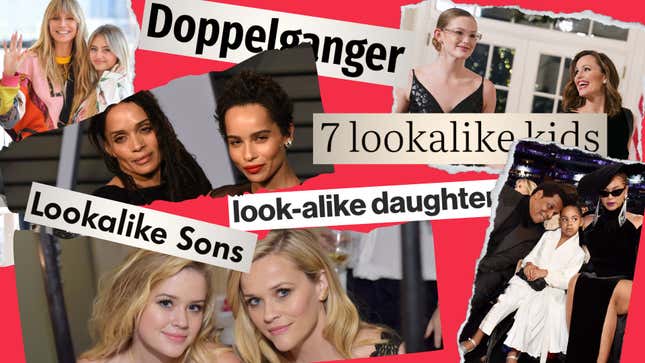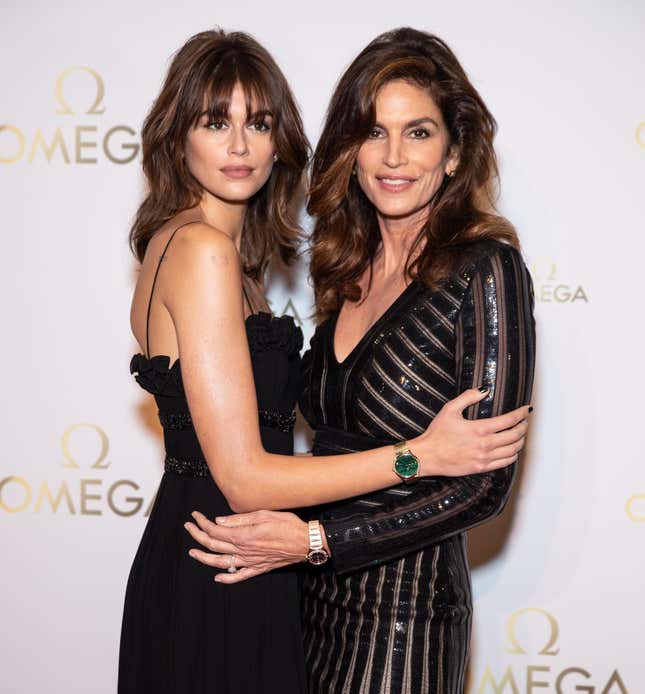What Tabloids Are Really Saying When They Call Celebrity Kids ‘Lookalikes’
I like to call it the "made you lookalike" ploy, and its uses get lawless and weird.
In Depth

“Jennifer Garner uses her look-alike daughter Violet as a shield from paparazzi”
“Gwyneth Paltrow poses with her look-alike kids and more star snaps”
“Kate Winslet Poses with Lookalike Daughter Mia on BAFTA TV Awards Red Carpet — See the Photos!”
“Gavin Rossdale, 57, and his lookalike teenage son, Kingston, 16, spend quality time together during a shopping trip in Malibu.”
Sure, I’ll click. Click. Click. Click and click again.
Tabloid coverage of a celebrity and their child is almost always accompanied by the word “lookalike.” Page Six, People, Daily Mail—they deploy the word constantly. I like to call this tactic the “made you lookalike.” Because, without fail, I click on the story, muttering, “I’ll be the judge of that,” to myself as I do.
Sometimes the child in question does indeed look strikingly like their parent, as is the case with Reese Witherspoon and Ava Phillippe, or Jennifer Garner and Violet Affleck. But more often than not, the kid bears the vague resemblance any offspring, biological or not, might to a person who raised them—the kind of likeness that makes you tilt your head and say, “Sure, I can sort of see it.” Pierce Brosnan and his “lookalike sons” and Christie Brinkley and her “lookalike daughter” Sailor Brinkley Cook come to mind.
Tabloids aren’t a media form particularly hellbent on using accurate semantics. But if meaning is created through repetition, then please let me unpack all my many thoughts on their persistent usage of the word “lookalike.”
-

-

-

-

-

-

-

-

-

-

-

-

-

-

-

-

-

-

-

-

-

-

-

-

-

-

-

-

-

-

-

-

-

-

-

-

-

-

-

-









































